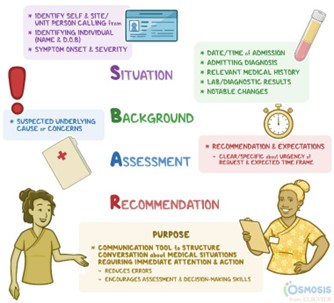A nurse is preparing to obtain consent from a client who has a tibia fracture. The client received IV morphine sulfate prior to arrival on the unit and is scheduled for surgery. Which of the following actions should the nurse take?
Obtain consent from the client.
Acknowledge the client and sign the consent.
Obtain consent from a relative of the client.
Delay the procedure.
The Correct Answer is C
The correct answer is Choice C.
Choice A rationale: Obtaining consent directly from a client who has received IV morphine sulfate is invalid due to impaired cognitive function. Morphine acts on mu-opioid receptors in the central nervous system, reducing alertness, memory retention, and decision-making capacity. Informed consent requires full comprehension of risks, benefits, and alternatives. Morphine’s sedative effects compromise this standard. Normal Glasgow Coma Scale should be 15 for full alertness; sedation lowers this, rendering consent legally and ethically unsound.
Choice B rationale: The nurse cannot legally sign the consent on behalf of the client, even if the client is acknowledged. This violates the principle of autonomy and informed decision-making. The nurse’s role is to witness the client’s signature, not substitute it. Morphine impairs cognition, and any consent obtained under its influence is invalid. Legal standards require that the client be alert, oriented, and capable of understanding the procedure. Proxy consent must be pursued if capacity is compromised.
Choice C rationale: When a client is under the influence of opioids and lacks decision-making capacity, consent must be obtained from a legally authorized representative, such as a relative or healthcare proxy. Morphine alters consciousness and impairs executive function, making the client temporarily incompetent. Legal surrogates are empowered to make healthcare decisions in such cases. This ensures ethical compliance and protects patient rights. The nurse must verify documentation of proxy authority before proceeding with consent.
Choice D rationale: Delaying the procedure may be necessary if no authorized proxy is available, but it is not the first action. The priority is to identify and contact a legally authorized representative to obtain valid consent. Delays can compromise care, especially in urgent surgical cases. The nurse must act promptly to secure proxy consent, ensuring procedural integrity and patient safety. Only if no proxy is reachable should delay be considered, with documentation of rationale.
Nursing Test Bank
Naxlex Comprehensive Predictor Exams
Related Questions
Correct Answer is D
Explanation
The nurse should prioritize the client who requests pain medication as their need is likely the most urgent. Pain management is an important aspect of nursing care and addressing the client's pain should be a priority.
The other clients have needs that are important but not as urgent as the client in pain. The client who wants a bath can wait until the nurse has addressed more pressing needs. The client who asks to review instructions about their new prescription can also wait, as long as they are not in immediate danger. The client who needs a referral for home health services can also wait until the nurse has addressed more urgent needs.
Correct Answer is ["A","B","C","E"]
Explanation
SBAR stands for Situation, Background, Assessment, and Recommendation. It is a systematic method of communication that provides a structured framework for conveying important information about a patient. To ensure that the report is thorough, the nurse needs to include information about the situation of the patient, the background leading up to the situation, an assessment of the patient, and recommendations for moving forward.
Option d is incorrect because barriers to providing treatment are not part of the SBAR framework.
Option f is incorrect because the reason why the report is needed is not part of the SBAR framework.

Whether you are a student looking to ace your exams or a practicing nurse seeking to enhance your expertise , our nursing education contents will empower you with the confidence and competence to make a difference in the lives of patients and become a respected leader in the healthcare field.
Visit Naxlex, invest in your future and unlock endless possibilities with our unparalleled nursing education contents today
Report Wrong Answer on the Current Question
Do you disagree with the answer? If yes, what is your expected answer? Explain.
Kindly be descriptive with the issue you are facing.
